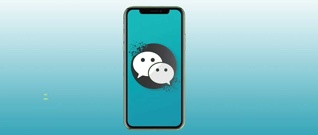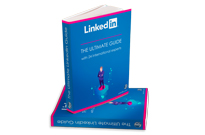Overthinking and loss of creativity, the solution
As a child, you were gifted with imagination and creativity. Now grown up, you base your judgment on your knowledge and experience. How to think like a child?
Have a look at the below graph. That riddle isn't new, but it was recently posted on Facebook.
"This problem can be solved by pre-school children in 5-10 minutes, by programmer – in 1 hour, by people with higher education … why don't you try it yourself?"
|
8809 = 6 |
5555 = 0 |
|
7111 = 0 |
8193 = 3 |
|
2172 = 0 |
8096 = 5 |
|
6666 = 4 |
1012 = 1 |
|
1111 = 0 |
7777 = 0 |
|
3213 = 0 |
9999 = 4 |
|
7662 = 2 |
7756 = 1 |
|
9313 = 1 |
6855 = 3 |
|
0000 = 4 |
9881 = 5 |
|
2222 = 0 |
5531 = 0 |
|
3333 = 0 |
2581 = ??? |

Have you been able to solve this riddle? How long did it take you? (the answer is given later in this article)
At the creation
When you were a child, you had no knowledge or experience to base your judgment on. Each decision or thinking you would make would only be based on your feelings, emotions and imagination.
You would look at numbers as separate graphic entities. After years of school and mathematics, after experiencing money, taxes, calculations, you now see numbers as define entities carrying specific meanings that can be added, subtracted, divided and bring solutions.
The journey that brought you from innocence to experience was built on knowledge accumulation.
In a sense, this journey gave you the material you need to face your daily life without difficulties.
However, it also killed your ability to be imaginative and creative: if all your thoughts are linked to experience and knowledge, how can you think beyond those standards?

Your situation
When you first looked at the riddle presented earlier, the first thing you saw was numbers and equations. The higher you went in studies, the more complicated your thinking was. You might have seen complicated equations, or simply calculations: both ways, you haven't seen a picture with shapes as would have had a child.
Maybe the riddle introduction ("can be solved by pre-school children") gave away an important indication: mathematics are not needed to find the answer.
But even if you actually noticed it, you probably tried to use math and solve the problem quickly.
Is that wrong?
It isn't wrong. We have been constructed by schools and parents in such a way that for all problems we have a formula we can apply. This is what society provides us with in order to be efficient and independent.
Nine times out of ten, this is what gets us out of complicated situations.
But once in a while, if you could think differently, you might find some other solutions, easier and more effective.
The solution
If when facing this riddle you could have immediately thought like you did when being a kid, you might have found the answer much faster.
This is the key to creativity.
If you are working with marketing, you know that the only thing (beyond quality and price) that sells is differentiation: how different is your product from others?
Thinking "out of the box" is the only way to make yourself different from your competitors. This can be a creative thinking for your product itself but also perfectly applies to marketing strategies and advertising: how differently can you reach people to make them remember you?
The problem is that you have been formatted for years. You have been told what is good and what is not in such a way that you couldn't even experience your own mistakes. You surely have saved time and deceptions, but what you have lost in the process is your ability to be different.
As for today, whenever you face a difficult situation or a situation in which you must make things in a way different, try this method: think of the simplest method you could imagine.
Forget about your knowledge and experience: what would a kid do? What would you have done before knowing all you know?
Once you have the answer, once you got rid of the complicated solution and focused on a straight forward one, then it is time to include your knowledge and make this idea a real concept.
(the solution is "2". We are here counting the number of circles: 0 has one circle, 6 has one, 9 has one, 8 has 2)
Last update: 2024-04-22 Tags: overthinking creativity enhance creativity develop creativity talent

















 Français
Français English
English